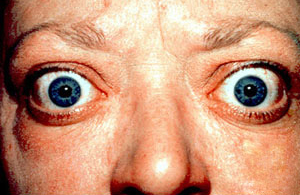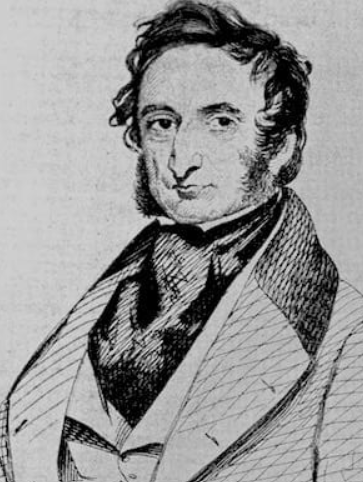1/
What is the mechanism of brain freeze?
Why do some people (myself included) get piercing headaches when eating cold food or drinks while others are totally unaffected?
#medtwitter #tweetorial
What is the mechanism of brain freeze?
Why do some people (myself included) get piercing headaches when eating cold food or drinks while others are totally unaffected?
#medtwitter #tweetorial

2/
Brain freeze, formally known as cold stimulus headache, actually has a diagnostic classification:
Transient frontal, temporal, or occipital headaches caused by passage of cold liquids or food over the palate and posterior oropharynx.
pubmed.ncbi.nlm.nih.gov/29368949/
Brain freeze, formally known as cold stimulus headache, actually has a diagnostic classification:
Transient frontal, temporal, or occipital headaches caused by passage of cold liquids or food over the palate and posterior oropharynx.
pubmed.ncbi.nlm.nih.gov/29368949/
3/
The first question that I had was how common is susceptibility to brain freeze?
I asked #medtwitter what percentage experience it and 82% said they do.
The first question that I had was how common is susceptibility to brain freeze?
I asked #medtwitter what percentage experience it and 82% said they do.
https://twitter.com/AvrahamCooperMD/status/1310010134534467584?s=20
4/
A cross-sectional, population-based German study found a prevalence of 51% among adults.
💡 Brain freeze is clearly not universal and only happens to some of us.
pubmed.ncbi.nlm.nih.gov/31645112/
A cross-sectional, population-based German study found a prevalence of 51% among adults.
💡 Brain freeze is clearly not universal and only happens to some of us.
pubmed.ncbi.nlm.nih.gov/31645112/

5/
So what causes brain freeze?
One clue is a symptom that can accompany it: lacrimation (aka tearing).
Lacrimation occurred in up to 49% of those who experienced brain freeze, in a study where subjects were exposed to ice water/cubes.
pubmed.ncbi.nlm.nih.gov/27206961/
So what causes brain freeze?
One clue is a symptom that can accompany it: lacrimation (aka tearing).
Lacrimation occurred in up to 49% of those who experienced brain freeze, in a study where subjects were exposed to ice water/cubes.
pubmed.ncbi.nlm.nih.gov/27206961/

6/
Why is lacrimation significant?
It turns out that the lacrimal glands of the eye are innervated by the lacrimal nerve, a branch of the trigeminal nerve (CN V).
🔑 This effectively localizes brain freeze to stimulation of the trigeminal nerve.
link.springer.com/chapter/10.100…
Why is lacrimation significant?
It turns out that the lacrimal glands of the eye are innervated by the lacrimal nerve, a branch of the trigeminal nerve (CN V).
🔑 This effectively localizes brain freeze to stimulation of the trigeminal nerve.
link.springer.com/chapter/10.100…

7/
We now know that the trigeminal nerve is involved, but how does ingesting cold substances cause headache?
Let's walk through the series of events that culminates with brain freeze.
We now know that the trigeminal nerve is involved, but how does ingesting cold substances cause headache?
Let's walk through the series of events that culminates with brain freeze.
8/
Upon ingesting cold food or drinks, the temperature of the palate and posterior oropharynx decreases.
This stimulates branches of the trigeminal nerve entering the sphenopalatine ganglion (SPG), a parasympathetic ganglion near the zygomatic arch.
ncbi.nlm.nih.gov/pmc/articles/P…
Upon ingesting cold food or drinks, the temperature of the palate and posterior oropharynx decreases.
This stimulates branches of the trigeminal nerve entering the sphenopalatine ganglion (SPG), a parasympathetic ganglion near the zygomatic arch.
ncbi.nlm.nih.gov/pmc/articles/P…

9/
Parasympathetic stimulation causes the lacrimation we already discussed, but also may impact cerebral vasculature.
This study looked at the effects of drinking ice water (compared w/ lukewarm) on cerebrovascular tone and headache symptoms.
pubmed.ncbi.nlm.nih.gov/31316454/
Parasympathetic stimulation causes the lacrimation we already discussed, but also may impact cerebral vasculature.
This study looked at the effects of drinking ice water (compared w/ lukewarm) on cerebrovascular tone and headache symptoms.
pubmed.ncbi.nlm.nih.gov/31316454/

10/
Amazingly, drinking ice water was associated w/ cerebral vasodilation, whether or not the participant experienced brain freeze.
⚡️And those who experienced brain freeze had more vasodilation than those who didn't.
pubmed.ncbi.nlm.nih.gov/31316454/
Amazingly, drinking ice water was associated w/ cerebral vasodilation, whether or not the participant experienced brain freeze.
⚡️And those who experienced brain freeze had more vasodilation than those who didn't.
pubmed.ncbi.nlm.nih.gov/31316454/

11/
Those w/ both brain freeze + lacrimation had the most vasodilation.
🔑 This suggests the following mechanistic chain:
Decreased posterior pharyngeal temperature ➡️ trigeminal signaling through SPG ➡️ vasodilation ➡️ brain freeze
pubmed.ncbi.nlm.nih.gov/31316454/
Those w/ both brain freeze + lacrimation had the most vasodilation.
🔑 This suggests the following mechanistic chain:
Decreased posterior pharyngeal temperature ➡️ trigeminal signaling through SPG ➡️ vasodilation ➡️ brain freeze
pubmed.ncbi.nlm.nih.gov/31316454/

12/
Let’s return to one of the questions from the lead tweet.
Why do some people get brain freeze but not everyone?
While the answer isn’t entirely clear, it may have to do w/ predisposition to headaches in general, particularly migraines.
Let’s return to one of the questions from the lead tweet.
Why do some people get brain freeze but not everyone?
While the answer isn’t entirely clear, it may have to do w/ predisposition to headaches in general, particularly migraines.
13/
In an observational study in adolescents, 55% of those with a history of migraines experienced brain freeze, versus only 39% of those without migraines.
pubmed.ncbi.nlm.nih.gov/14984231/
In an observational study in adolescents, 55% of those with a history of migraines experienced brain freeze, versus only 39% of those without migraines.
pubmed.ncbi.nlm.nih.gov/14984231/

14/
In the same study, those w/ the most migraine aura/symptoms actually had the highest prevalence of brain freeze.
💥 Incredibly, more than half reported that cold-induced headaches occurred in the exact same location as their migraines.
pubmed.ncbi.nlm.nih.gov/14984231/
In the same study, those w/ the most migraine aura/symptoms actually had the highest prevalence of brain freeze.
💥 Incredibly, more than half reported that cold-induced headaches occurred in the exact same location as their migraines.
pubmed.ncbi.nlm.nih.gov/14984231/

15/
This apparent link b/w migraines and brain freeze actually makes physiologic sense.
Although migraines likely result from cortical spreading depressions and brain freeze from cerebral vasodilation, both involve trigeminal nerve system activation.
ncbi.nlm.nih.gov/pmc/articles/P…
This apparent link b/w migraines and brain freeze actually makes physiologic sense.
Although migraines likely result from cortical spreading depressions and brain freeze from cerebral vasodilation, both involve trigeminal nerve system activation.
ncbi.nlm.nih.gov/pmc/articles/P…

16/
Let's close w/ some strategies to prevent and "treat" brain freeze.
A cheeky BMJ study showed that slowly eating ice cream reduced brain freeze risk.
💡Eating slowly allows cold substances to warm up in the mouth and reduces trigeminal activation.
ncbi.nlm.nih.gov/pmc/articles/P…
Let's close w/ some strategies to prevent and "treat" brain freeze.
A cheeky BMJ study showed that slowly eating ice cream reduced brain freeze risk.
💡Eating slowly allows cold substances to warm up in the mouth and reduces trigeminal activation.
ncbi.nlm.nih.gov/pmc/articles/P…
17/
Another preventative strategy:
Keep cold food and drinks in the front of the mouth, prior to swallowing.
💡This decreases SPG and trigeminal nerve stimulation, as they are more sensitive to posterior temperature changes (b/c of anatomic location).
bit.ly/3cJZAc5
Another preventative strategy:
Keep cold food and drinks in the front of the mouth, prior to swallowing.
💡This decreases SPG and trigeminal nerve stimulation, as they are more sensitive to posterior temperature changes (b/c of anatomic location).
bit.ly/3cJZAc5

18/
Thankfully, brain freeze is transient and typically resolves within seconds to minutes.
Pressing your tongue to the roof of the mouth - which warms the mucosa and decreases stimulation of the trigeminal nerve/SPG - can help it resolve a bit faster.
bit.ly/2SfJQUU
Thankfully, brain freeze is transient and typically resolves within seconds to minutes.
Pressing your tongue to the roof of the mouth - which warms the mucosa and decreases stimulation of the trigeminal nerve/SPG - can help it resolve a bit faster.
bit.ly/2SfJQUU
19/
🔑 Brain freeze results from cold-induced trigeminal and sphenopalatine ganglion stimulation
🔑 This induces cerebral vasodilation, which seems to be the source of headache
🔑 Predisposition to headaches (eg migraines) may account for why only some people get brain freeze
🔑 Brain freeze results from cold-induced trigeminal and sphenopalatine ganglion stimulation
🔑 This induces cerebral vasodilation, which seems to be the source of headache
🔑 Predisposition to headaches (eg migraines) may account for why only some people get brain freeze
• • •
Missing some Tweet in this thread? You can try to
force a refresh

























